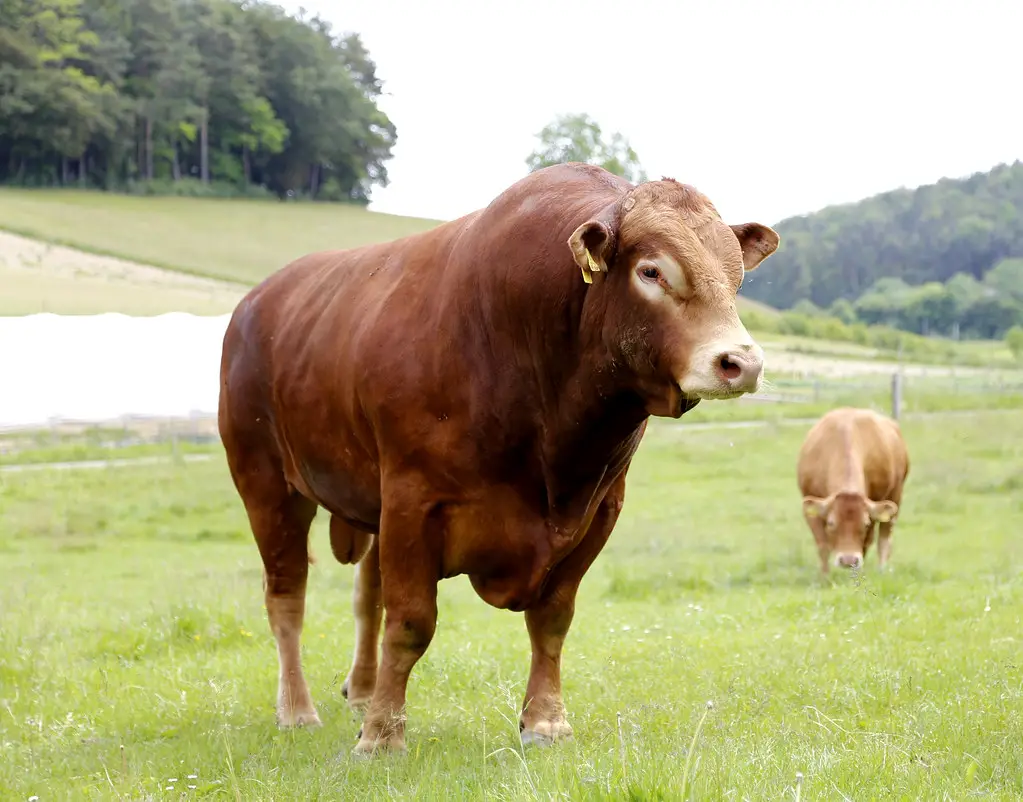
Have you ever heard of Limousin cattle? This French breed is turning heads in the cattle world with its impressive golden-red coat and muscular build. If you’re a rancher or just curious about different cattle breeds, you’ve come to the right place. We’re diving deep into the world of Limousin cattle, exploring their pros, cons, and everything in between. So, grab a cup of coffee and let’s get started!
Limousin Cattle: An Overview
Originating from the Limousin region of France, these cattle were initially known for their draft capabilities. Over time, they’ve evolved into a premier beef breed, prized for their superior meat quality. But there’s more to Limousin than just good looks and tasty steaks. Let’s break down what makes them tick.
The Good: Advantages of Limousin Cattle
- Health & Hardiness: Limousin cattle are tough cookies. They have a natural resistance to many common diseases, which means fewer vet visits and lower healthcare costs. They’re also known for their longevity, often outliving other breeds. And let’s not forget those mothering instincts! Limousin cows are fiercely protective and attentive to their calves.
- Meat Quality & Production: Now, for the main course – the beef! Limousin meat is renowned for its tenderness, marbling, and low-fat content. It’s a favorite among chefs and steak lovers alike. Plus, these cattle are efficient converters of feed, meaning they put on weight quickly, which translates to quicker returns for ranchers.
- Temperament & Handling: Contrary to some rumors, Limousin aren’t inherently stubborn. Most are docile and easy to handle, especially with proper training. This makes them a good option for both seasoned ranchers and those new to cattle farming.
- Adaptability: Limousins are adaptable to a wide range of climates and grazing conditions. From hot summers to chilly winters, they tend to fare well in various environments. This versatility makes them a popular choice for ranchers across different regions.
- Economic Benefits: All these advantages add up to economic benefits for ranchers. Less money spent on vet bills, faster growth rates, and higher-quality beef means a healthier bottom line.
The Not-So-Good: Disadvantages of Limousin Cattle
- Health Concerns: While generally healthy, Limousin can be prone to certain genetic issues, like dwarfism. Reputable breeders screen for these conditions, but it’s something to be aware of.
- Production Challenges: Limousin cows aren’t known for their milk production. If you’re looking for a dual-purpose breed (milk and beef), they might not be the best fit. Additionally, their larger calves can sometimes lead to calving difficulties, requiring assistance.
- Temperament Issues: While most Limousin are docile, some bloodlines can be a bit more temperamental. It’s crucial to choose your breeding stock carefully and prioritize animals with calm dispositions.
- Adaptability Limitations: Although they’re adaptable, Limousin don’t handle extreme cold as well as some other breeds. If you’re in a region with harsh winters, you might need to provide additional shelter and care.
- Economic Drawbacks: While Limousin often have lower feed costs due to their efficient grazing, acquiring high-quality breeding stock can be a significant investment.
Limousin Bulls: The Muscular Maestros
Limousin bulls are the muscle men of the cattle world. Their impressive build and genetic potential make them sought-after for crossbreeding programs. They can improve the meat quality and yield of other breeds, resulting in better beef for consumers.
Limousin Cows: The Nurturing Mothers
Limousin cows are dedicated mothers, fiercely protective of their calves. They generally have good milk production for beef breeds, ensuring their offspring get a healthy start. While not the most prolific breeders, their maternal instincts are second to none.
FAQs: Your Burning Questions Answered
Are Limousin cattle aggressive?
Generally, no. Most Limousin are docile and easy to handle, but temperament can vary depending on individual personality and breeding.
What are Limousin cattle best known for?
Their exceptional meat quality is their claim to fame. Limousin beef is tender, flavorful, and low in fat.
Do Limousin cattle make good mothers?
Absolutely! Their strong maternal instincts and dedication to their calves make them excellent mothers.
Conclusion: The Golden Opportunity
Limousin cattle offer a compelling combination of high-quality beef, efficient growth, and relative ease of management. While they have some downsides, the potential rewards often outweigh the challenges. If you’re a rancher looking for a breed that excels in meat production and fits various environments, Limousin might be your golden ticket.
Have you worked with Limousin cattle? What are your experiences with this breed? Share your thoughts in the comments below! We’d love to hear from you.
Let’s continue the conversation!
